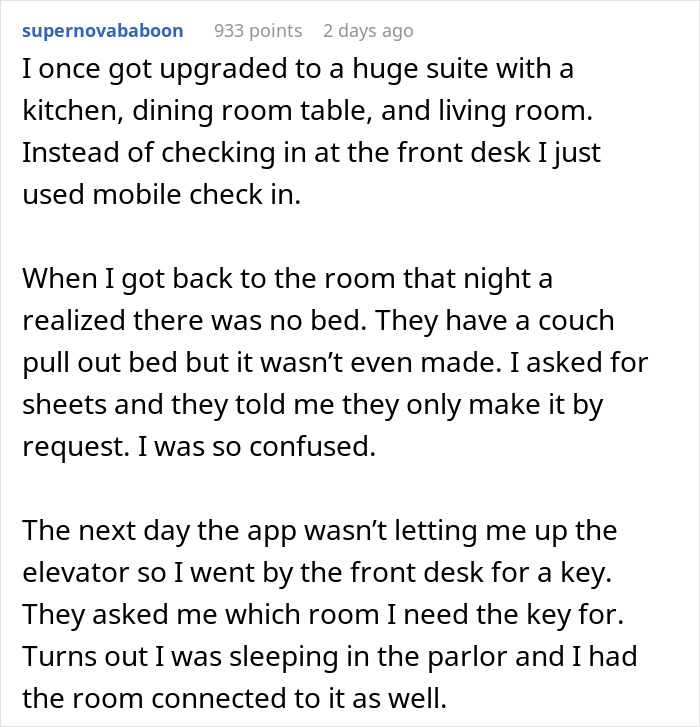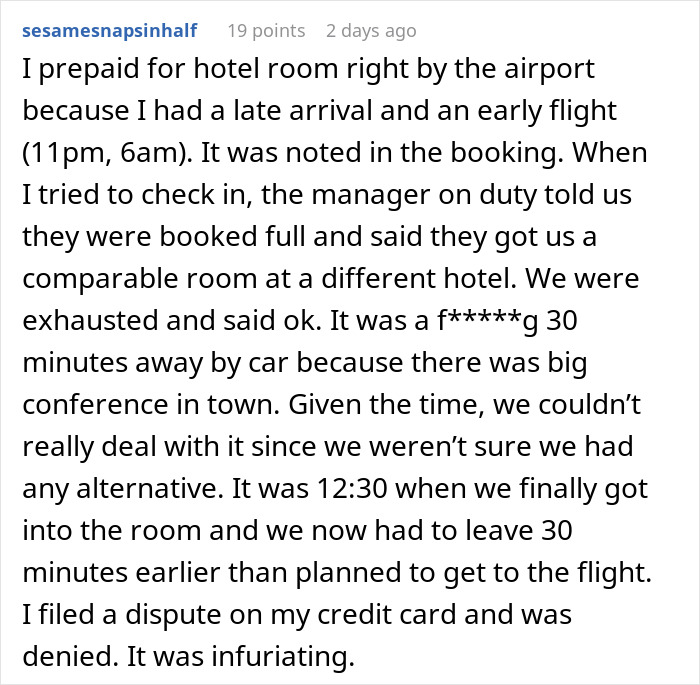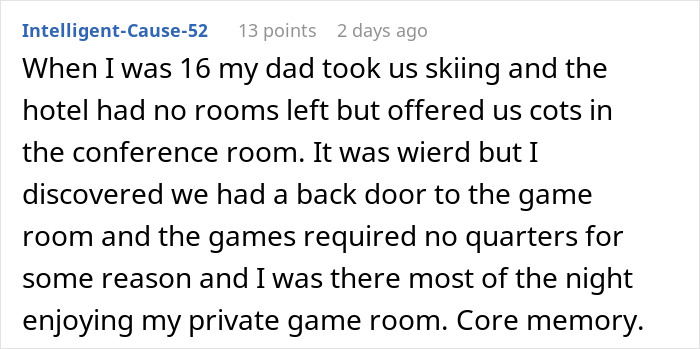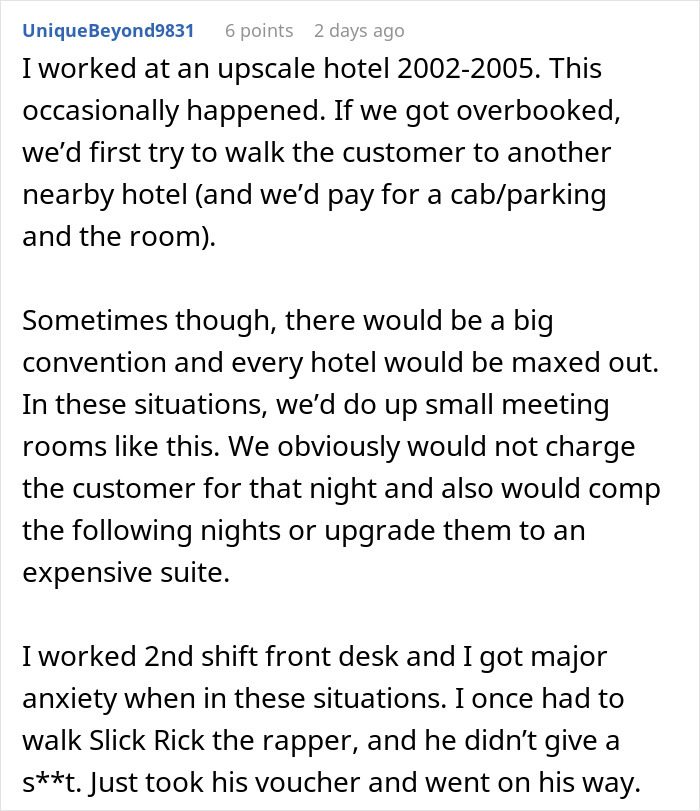When people book a room in a hotel, especially way in advance, they reasonably expect to get one upon arriving at said hotel. But that’s not always what happens.
Take this mildly infuriated couple, for instance. They came to the hotel only to learn that it had no room for the guests, despite the fact that they made a reservation weeks ago. They were offered an alternative, however – a sofa bed in a room where you would least expect one to be. Scroll down to find pictures of the couple’s home-away-from-home, as well as more details in the OP’s own words, which she shared with fellow members of the ‘Mildly Infuriating’ community.
This couple’s hotel didn’t have a room for them, so they were offered an alternative
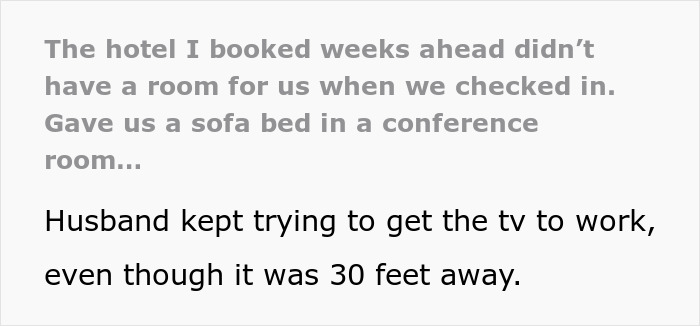

Image credits: Llebanna

Image credits: Llebanna

Image credits: Llebanna

Image source: Llebanna

Image credits: Llebanna

Image credits: Llebanna
Overbooking is a common practice in the world of hospitality

Image credits: Andrea Piacquadio / pexels (not the actual photo)
Just like airlines, hotels, too, tend to overbook sometimes, which can become quite a headache for both the guests and the front desk employees who said guests often let their desperation out on. In the hotel industry, overbooking is a practice of confirming more rooms than the hotel has to offer. Unsurprisingly, that leads to hotel managers having to look for alternative options for their guests—like turning a conference room into a bedroom—or engage in more routine solutions for being overbooked.
One of such routine procedures is a hotel ‘walking’ its guests, meaning, booking them a room in a different hotel. While ‘walking’ is not a recent practice, it tends to be on the rise as hotel occupancy rates increase, The New York Times reports.
“In periods of high occupancy, hotels overbook more hotel rooms, which results in more guests getting walked,” an adjunct professor at the Tisch Center of Hospitality at New York University, Bjorn Hanson, told the news outlet. As of May, 2024, the monthly occupancy rate of hotels worldwide is 2% short of 70%, which is considered a good rate by hotel standards.
Another hospitality expert, a senior lecturer at the School of Hotel Administration at Cornell University, Reneta McCarthy, told The New York Times that who gets ‘walked’ depends on numerous factors. According to her, men are more likely to be relocated to a different hotel than women, as are solo-travelers compared to couples or families. Those who only have one night reserved are more at risk, too, as are travelers who check in late in the day.
In case of overbooking, the hotel might ‘walk’ its guests and provide some sort of compensation

Image credits: Pixabay / pexels (not the actual photo)
According to the hotel commerce platform SiteMinder, in addition to ‘walking’ its clients, the hotel might provide compensation of some sorts, be it free transportation to the alternative hotel, a free meal, or a free night’s stay. If you’re wondering if it’s legal for hotels to ‘walk’ their clients, offering a dinner voucher as compensation, SiteMinder reports that overbooking is generally legal (though laws and regulations may vary by country or by state or region within a country).
The aforementioned source suggests that hotels have two big reasons to overbook: avoiding losing revenue and achieving 100% occupancy. Since cancellations are inevitable, overbooking allows establishments to use every room they have and not lose revenue even if the cancellations are made last-minute. As for the occupancy, such last-minute cancellations and no-shows mean that the hotel will not reach the expected 100% occupancy, despite being fully booked initially, which is not a favorable situation either.
Judging from the fact that the hotel could not provide a room for the OP and her husband, despite them having booked one in advance, it’s safe to assume that the hotel they stayed at was overbooked. Consequently, the couple had to stay in a conference room, but some redditors suggested that it came with a silver lining – “so much room for activities!” Fellow netizens shared this and other thoughts in the comments, where the OP provided more details about their conference room stay.
The woman shared more details in the comments








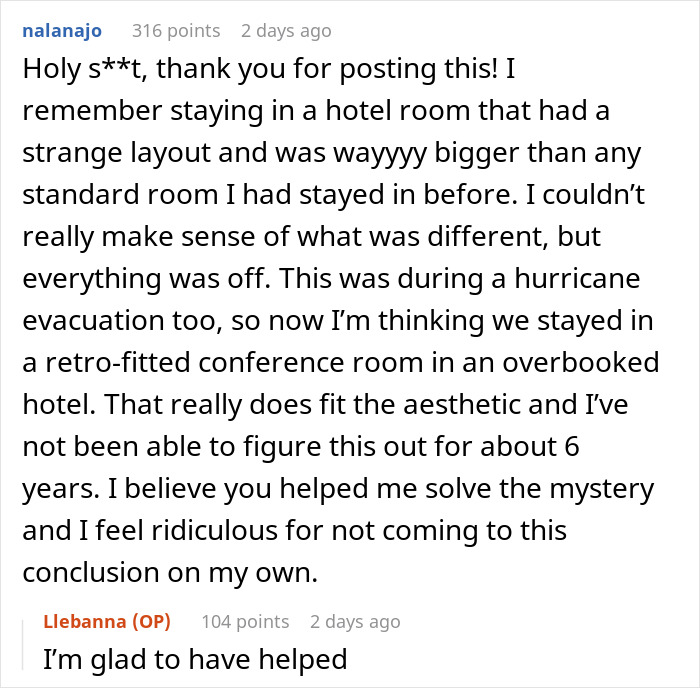
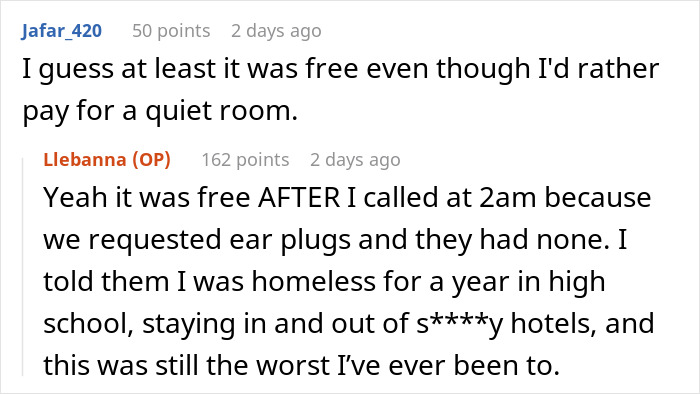

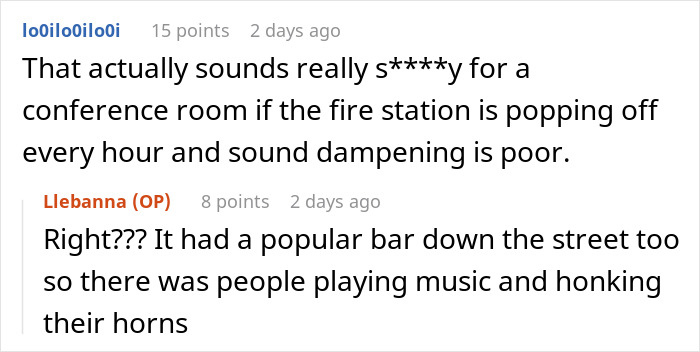







Fellow netizens shared their hotel stories, too, some had seemingly gone through similar situations themselves
